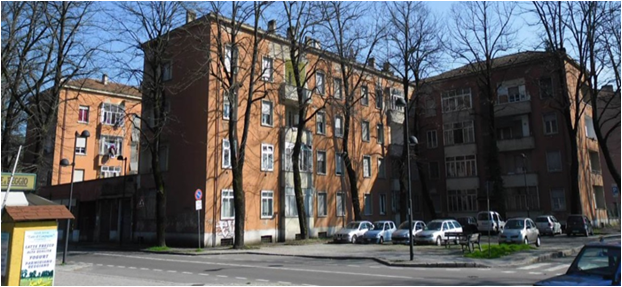Reducing greenhouse gas emissions through the energy conversion of social housing
Reggio Emilia, Emilia-Romagna, Italy
The building was built in 1936 and consists of 51 social housing dwellings, representing a great condominium with a series of issues to be dealt with. The presence of low income tenants has driven many common goods into misuse and sent the building into degradation and vandalism. The thermal dispersions of the building envelope are high due to the obsolete and inefficient type of windows and the opaque non-thermally insulated structures with deteriorated plasters. The tenants started to face energy bill related problems, due to the lack of ordinary maintenance and knowledge of how to save energy.
In addition, the building is seismically obsolete and situated in a very seismic active area (thinking of the 2016 earthquake).
Benefits
The intervention on the structures allows the reduction of the need for heating, with direct economic benefit. The new envelope will guarantee a better quality of life to the economically weak tenants, together with the addition of a improved aesthetic view of one of the main streets of the city.
The seismic upgrade, done together with the energy efficiency intervention, will guarantee the safety of the inhabitants and of the structure with a cost 17% higher than applying energy efficiency alone.
The experimentation of the Horizon Project Lemon has provided training and awareness campaigns to help future tenants to understand their energy consumption, demonstrating high effectiveness when in accordance to other interventions.

